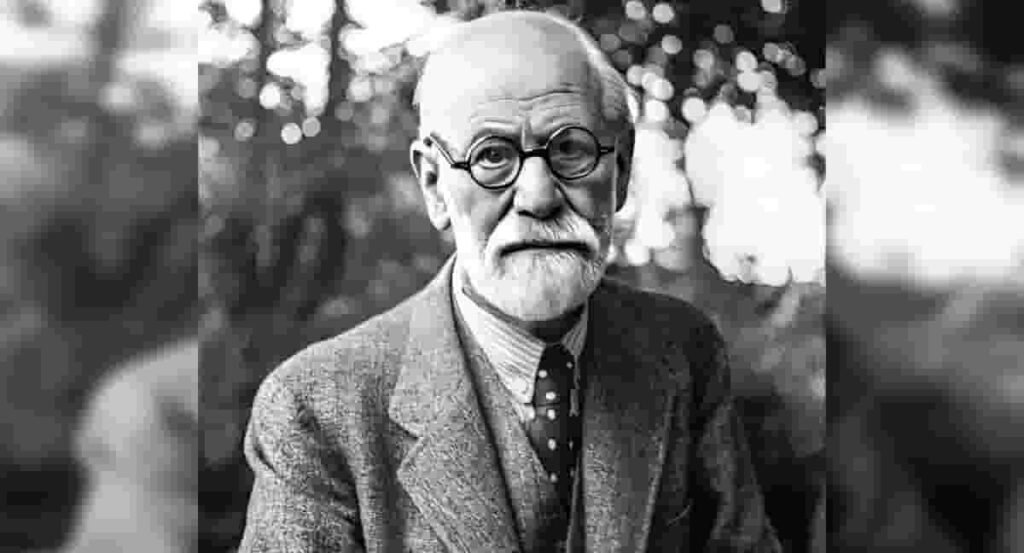Comprehensive Guide to Psychology: An Exploration of the Human Mind
Introduction to Psychology
Psychology, derived from the Greek words “psyche” (meaning soul or mind) and “logos” (meaning study or discourse), is the scientific study of the mind and behavior. This discipline seeks to explore the complexities of human consciousness, actions, and interactions, providing deep insights into who we are and why we act the way we do. Psychology bridges biology, sociology, and philosophy, making it one of the most multifaceted areas of study.
Comprehensive Guide to Psychology: An Exploration of the Human Mind
Historical Origins of Psychology

Early Philosophical Roots
Psychology’s history is deeply rooted in philosophy, with figures such as Aristotle and Plato attempting to unravel the mysteries of the human mind. These early discussions centered around topics like perception, memory, and emotion without relying on empirical methods. Philosophers like Descartes later contributed by focusing on dualism—the connection between mind and body.
The Birth of Modern Psychology

Modern psychology began to emerge in the late 19th century when Wilhelm Wundt established the first psychology laboratory in Leipzig, Germany, in 1879. Wundt’s methods emphasized introspection and the study of conscious experience, laying the groundwork for psychology as a scientific discipline. Later, figures like William James, Sigmund Freud, and John B. Watson expanded the field to include functionalism, psychoanalysis, and behaviorism, respectively.
Major Branches of Psychology
Psychology now spans various subfields, each specializing in different aspects of human behavior and thought. Below are the key branches:
1. Clinical Psychology
This branch focuses on diagnosing and treating mental health issues like depression, anxiety, and schizophrenia. Clinical psychologists work closely with individuals to provide counseling and therapeutic interventions.
2. Cognitive Psychology
Cognitive psychology examines internal brain processes, such as memory, perception, decision-making, and problem-solving. It explores how people acquire, process, and store information.
3. Developmental Psychology
Developmental psychologists study how humans grow and change throughout their lifespan, including changes in emotional, physical, intellectual, and social capabilities.
4. Social Psychology
This field investigates how individuals interact within groups and how social settings influence attitudes, behaviors, and emotions. Social psychologists explore topics like conformity, persuasion, and group dynamics.
5. Industrial-Organizational Psychology
This branch applies psychological principles in workplace settings to improve productivity, organizational culture, and employee well-being.
6. Neuropsychology
Neuropsychologists examine the relationship between brain structure and function and behavior. This field often focuses on neurological conditions and their impact.
7. Evolutionary Psychology
This area of study investigates how evolutionary processes like natural selection influence human behavior, examining topics such as mate selection and aggression from an evolutionary perspective.
8. Forensic Psychology
Forensic psychologists apply psychological principles within legal and criminal systems, aiding in criminal profiling, jury selection, and understanding criminal behavior.
Key Psychological Theories
Numerous theories have shaped psychology. Here are some fundamental ones:
Psychoanalytic Theory (Sigmund Freud)
Freud proposed that unconscious motivations, desires, and conflicts greatly influence behavior. He introduced the concepts of the “id,” “ego,” and “superego” to explain personality dynamics.
Behaviorism (John B. Watson and B.F. Skinner)
This theory focuses on observable behavior, asserting that behaviors are learned through interaction with the environment. Conditioning plays a crucial role in behaviorism, as seen in classical and operant conditioning.
Humanistic Psychology (Carl Rogers and Abraham Maslow)
Humanistic theories emphasize personal growth, self-actualization, and individual potential. Maslow’s hierarchy of needs is a cornerstone of this branch.
Cognitive Theory (Jean Piaget and Albert Bandura)
Cognitive psychology explores how thought processes influence behavior and emotion. Piaget’s cognitive development stages and Bandura’s social learning theory are prominent contributions.
Biological Psychology
Biological psychology connects behavior and mental processes to the brain, neurotransmitters, and genetics. It underscores the physiological basis of psychological phenomena.
Research Methods in Psychology
Psychologists employ a range of methods to investigate human behavior and cognition:
- Experiments: Conducting controlled studies to determine causation and effect.
- Observations: Monitoring behavior in natural settings or structured environments.
- Surveys and Questionnaires: Gathering quantitative or qualitative data by asking participants standardized questions.
- Case Studies: In-depth analyses of individuals or groups to examine rare phenomena.
- Neuroimaging and Biological Analysis: Techniques like fMRI and PET scans reveal brain activity and neural correlates of behavior.
Applications of Psychology
The field has practical applications across various domains:
- Education: Educational psychologists help design curricula and provide learning support.
- Healthcare: Psychologists aid in mental health diagnostics and therapy.
- Marketing: Consumer psychologists devise strategies to influence buyer behavior.
- Sports: Sports psychologists optimize athlete performance and mental well-being.
- Law: Legal psychologists assist in understanding witness testimony and criminal behavior.
Challenges and Ethical Considerations in Psychology
Psychologists often grapple with challenges like:
- Ethics: Upholding confidentiality and avoiding manipulation.
- Bias: Minimizing biases in research and practice to maintain impartiality.
- Complexity of Human Behavior: The variability of individuals makes psychology highly nuanced.
Frequently Asked Questions (FAQs)

Psychology, the scientific study of the mind and behavior, often conjures up images of therapists’ couches and inkblot tests. However, it’s a far broader and more nuanced field than popular culture often portrays. From understanding why we make certain choices to developing strategies for managing stress, psychology plays a crucial role in shaping our understanding of ourselves and the world around us. This blog post aims to demystify psychology, answering key questions and exploring its growing influence in modern life.
1. What is the Primary Goal of Psychology?
While psychology delves into a vast array of topics, its overarching goal can be summarized as understanding, explaining, and influencing behavior. This multi-faceted goal can be broken down into the following key objectives:
- Describing Behavior: The initial step in understanding any phenomenon is accurate observation and description. Psychologists strive to carefully observe and document behaviors, thoughts, and emotions in various contexts. This involves using a variety of research methods, including experiments, surveys, case studies, and naturalistic observation. For example, researchers might describe the specific behaviors displayed by children diagnosed with ADHD or meticulously document the reactions of individuals facing stressful situations.
- Explaining Behavior: Once behaviors are described, the next step is to identify the underlying causes and contributing factors. This involves developing theories and hypotheses that attempt to explain why people think, feel, and act the way they do. This is where complex concepts like cognitive processes, social influences, biological factors, and learned behaviors come into play. For instance, a psychologist might explore the impact of early childhood experiences on adult attachment styles or investigate the role of neurotransmitters in depression.
- Predicting Behavior: Building on the understanding of causes and contributing factors, psychology aims to predict future behavior. By identifying patterns and correlations, psychologists can anticipate how individuals might react in specific situations. This predictive ability is crucial for developing interventions and strategies to address potential problems. For example, understanding the factors that contribute to recidivism rates can help psychologists predict which former inmates are more likely to re-offend and tailor rehabilitation programs accordingly.
- Influencing Behavior: Ultimately, psychology seeks to use its understanding of behavior to bring about positive change. This involves developing interventions and strategies to improve mental health, enhance performance, promote well-being, and address social problems. This could involve developing therapeutic techniques to treat anxiety disorders, designing effective learning strategies for students, or creating interventions to reduce prejudice and discrimination. This goal is often referred to as applied psychology.
Therefore, the primary goal of psychology is not just to understand the human mind, but to use that understanding to improve lives and contribute to a better society. It’s about turning theoretical knowledge into practical solutions.
2. Can Psychology Improve Daily Life?
The principles and insights of psychology aren’t confined to academic journals and clinical settings; they have profound implications for our everyday lives. Here are just a few examples of how psychology can improve daily life:
- Improved Communication: Understanding principles of communication, such as active listening and non-verbal cues, can significantly enhance our relationships with family, friends, and colleagues. Psychology teaches us to be more mindful of how we communicate and how our words impact others. By understanding concepts like emotional intelligence, we can navigate social interactions more effectively and build stronger connections.
- Stress Management: Psychology provides us with a wealth of tools and techniques for managing stress. From cognitive behavioral therapy (CBT) to mindfulness practices, we can learn to identify our stressors, challenge negative thought patterns, and develop coping mechanisms to handle difficult situations. Techniques like deep breathing, progressive muscle relaxation, and visualization can be incorporated into daily routines to promote relaxation and reduce anxiety.
- Enhanced Self-Awareness: Psychology encourages introspection and self-reflection, helping us to understand our own strengths, weaknesses, values, and motivations. This self-awareness allows us to make more informed decisions, pursue goals that align with our true selves, and build a more authentic and fulfilling life. Understanding your personality type, learning about attachment styles, or exploring your personal values can provide valuable insights into your behavior and relationships.
- Increased Productivity: Psychological principles can be applied to improve productivity and performance in various aspects of life. Understanding concepts like motivation, goal setting, and time management can help us to stay focused, overcome procrastination, and achieve our objectives. Techniques like the Pomodoro Technique or the Eisenhower Matrix can be used to organize tasks and prioritize goals effectively.
- Better Decision-Making: Psychology reveals the cognitive biases and heuristics that can lead to flawed decision-making. By understanding these biases, we can become more aware of our own tendencies and make more rational and informed choices. For example, recognizing the anchoring bias can help us avoid being unduly influenced by initial information when making financial decisions.
- Improved Mental Well-being: Psychology offers effective treatments for a wide range of mental health conditions, such as anxiety, depression, and PTSD. Seeking professional help when needed and utilizing self-help resources based on psychological principles can significantly improve mental well-being and quality of life. Furthermore, promoting positive psychology principles like gratitude, optimism, and resilience can enhance overall happiness and life satisfaction.
In essence, psychology empowers us with the knowledge and skills to live more fulfilling, meaningful, and productive lives. By applying its principles, we can improve our relationships, manage stress, enhance our performance, and cultivate a greater sense of well-being.
3. What Does a Psychologist Do?
The role of a psychologist is incredibly diverse, encompassing a wide range of specializations and settings. Broadly speaking, psychologists apply their knowledge of human behavior to diagnose, treat, and prevent mental health issues, as well as to improve individual and organizational functioning. Here are some common activities that psychologists engage in:
- Assessment and Diagnosis: Psychologists use a variety of standardized tests, clinical interviews, and observational techniques to assess individuals’ cognitive, emotional, and behavioral functioning. This information is used to diagnose mental health disorders, identify learning disabilities, and evaluate personality traits.
- Therapy and Counseling: Psychologists provide therapy and counseling services to individuals, couples, families, and groups. They use various therapeutic approaches, such as cognitive behavioral therapy (CBT), psychodynamic therapy, and humanistic therapy, to help clients address their mental health concerns, develop coping skills, and improve their relationships.
- Research: Psychologists conduct research to investigate a wide range of topics, including the causes of mental illness, the effectiveness of different treatments, and the impact of social factors on behavior. Their research findings contribute to the advancement of psychological knowledge and inform clinical practice.
- Consultation: Psychologists provide consultation services to organizations, schools, and other institutions. They use their expertise in human behavior to help organizations improve their effectiveness, create healthier work environments, and address challenges related to employee morale and performance.
- Teaching: Many psychologists are involved in teaching at colleges and universities. They educate students about psychological principles, research methods, and clinical practice. They also mentor aspiring psychologists and contribute to the training of future professionals.
- Program Development and Evaluation: Psychologists design and evaluate programs aimed at improving mental health, promoting well-being, and addressing social problems. This involves developing interventions, collecting data, and analyzing the results to determine the effectiveness of the programs.
Psychologists can work in a variety of settings, including:
- Private Practice: Providing therapy and counseling services to individuals, couples, and families.
- Hospitals and Clinics: Working as part of a multidisciplinary team to provide mental health services to patients.
- Schools: Providing counseling and support services to students, teachers, and parents.
- Universities: Conducting research, teaching, and mentoring students.
- Businesses and Organizations: Providing consulting services to improve organizational effectiveness and employee well-being.
- Government Agencies: Conducting research, developing policies, and providing mental health services to the public.
It’s important to note that the specific tasks and responsibilities of a psychologist will vary depending on their specialization, work setting, and professional goals.
4. How Does Psychology Differ from Psychiatry?
While both psychology and psychiatry deal with mental health, they are distinct disciplines with different approaches to diagnosis, treatment, and training. The key differences lie in their educational background, scope of practice, and treatment modalities.
- Educational Background: Psychiatrists are medical doctors (MD or DO) who have completed medical school and a residency in psychiatry. This training provides them with a strong understanding of the biological and physiological aspects of mental illness. Psychologists, on the other hand, typically hold a doctoral degree (PhD or PsyD) in psychology. Their training focuses on psychological theories, research methods, and therapeutic techniques.
- Scope of Practice: Psychiatrists are licensed to prescribe medication and are often involved in managing the biological aspects of mental illness. They can order medical tests, diagnose medical conditions, and provide medical treatments. Psychologists, in most jurisdictions, are not licensed to prescribe medication (although some states are exploring prescription privileges for psychologists with specialized training). Their primary focus is on providing therapy and counseling, as well as conducting psychological assessments and research.
- Treatment Modalities: Psychiatrists often rely on a combination of medication and therapy to treat mental illness. They may use medication to manage symptoms, while therapy helps patients address the underlying psychological and emotional factors contributing to their condition. Psychologists primarily use therapy and counseling techniques to help clients address their mental health concerns. They may also use behavioral interventions, cognitive restructuring, and other psychological strategies to promote change.
Think of it this way: psychiatry is concerned with the biology of mental illness, while psychology is concerned with the behavior and cognition associated with mental illness. In many cases, psychologists and psychiatrists work together as part of a multidisciplinary team to provide comprehensive care to patients with mental health disorders. The psychiatrist may manage medication, while the psychologist provides therapy and counseling. The choice of whether to see a psychologist or a psychiatrist often depends on the individual’s specific needs and preferences. If medication is a likely component of treatment, seeing a psychiatrist is essential. If therapy and psychological assessment are the primary needs, a psychologist is the more appropriate choice.
5. What Are Some Emerging Trends in Psychology?
Psychology is a dynamic and evolving field, constantly adapting to discoveries and societal changes. Several exciting trends are shaping the future of psychology:
- Neuroscience Integration: The integration of neuroscience with psychology is providing a deeper understanding of the biological basis of behavior and mental processes. Techniques like fMRI and EEG are being used to investigate brain activity during different cognitive and emotional tasks, shedding light on the neural mechanisms underlying mental disorders and informing the development of more targeted treatments.
- Positive Psychology: This relatively new field focuses on promoting well-being and resilience by studying positive emotions, character strengths, and optimal functioning. Positive psychology interventions aim to enhance happiness, cultivate gratitude, and foster a sense of purpose in life. It’s shifting the focus from simply treating mental illness to actively promoting mental health and well-being.
- Digital Mental Health: Technology is transforming the delivery of mental health services, with the rise of online therapy, mobile apps, and wearable devices. These digital tools offer convenient and accessible ways to access mental health support, monitor symptoms, and track progress. Digital mental health is particularly promising for reaching underserved populations and reducing barriers to care.
- Cultural Competence: As societies become increasingly diverse, there is a growing emphasis on cultural competence in psychology. Psychologists are recognizing the importance of understanding and respecting cultural differences when providing mental health services. This involves adapting therapeutic approaches to be culturally sensitive and addressing the unique needs of individuals from diverse backgrounds.
- Artificial Intelligence (AI) and Machine Learning (ML): AI and ML are being applied to various aspects of psychology, including diagnosis, treatment planning, and research. AI-powered tools can analyze large datasets to identify patterns and predict individual risk factors for mental illness. ML algorithms can personalize treatment plans based on individual characteristics and preferences.
- Trauma-Informed Care: There’s a growing recognition of the widespread impact of trauma on mental and physical health. Trauma-informed care emphasizes creating safe and supportive environments that promote healing and resilience. This approach recognizes the importance of addressing the root causes of trauma and avoiding retraumatization.
- Prevention and Early Intervention: There is a growing emphasis on preventing mental health problems before they develop and intervening early when problems arise. This involves implementing evidence-based programs in schools, communities, and workplaces to promote mental health and reduce risk factors for mental illness.
These emerging trends highlight the exciting and innovative direction that psychology is taking. As technology advances and our understanding of the human mind deepens, psychology will continue to play a vital role in improving individual lives and creating a healthier and more equitable society.
Conclusion
Psychology offers invaluable insights into the enigmatic workings of the human mind and behavior. From understanding basic cognitive processes to addressing complex societal issues, psychology’s scope is vast and impactful. As it continues to evolve, it’s set to play an even more integral role in shaping human understanding and well-being.


